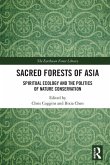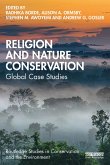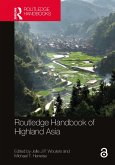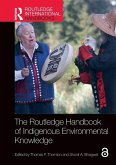Presenting a thorough examination of the sacred forests of Asia, this volume engages with dynamic new scholarly dialogues on the nature of sacred space, place, landscape, and ecology in the context of the sharply contested ideas of the Anthropocene.
Given the vast geographic range of sacred groves in Asia, this volume discusses the diversity of associated cosmologies, ecologies, traditional local resource management practices, and environmental governance systems developed during the pre-colonial, colonial, and post-colonial periods. Adopting theoretical perspectives from political ecology, the book views ecology and polity as constitutive elements interacting within local, regional, and global networks. Readers will find the very first systematic comparative analysis of sacred forests that include the karchall mabhuy of the Katu people of Central Vietnam, the leuweng kolot of the Baduy people of West Java, the fengshui forests of southern China, the groves to the goddess Sarna Mata worshiped by the Oraon people of Jharkhand India, the mauelsoop and bibosoop of Korea, and many more. Comprising in-depth, field-based case studies, each chapter shows how the forest's sacrality must not be conceptually delinked from its roles in common property regimes, resource security, spiritual matters of ultimate concern, and cultural identity.
This volume will be of great interest to students and scholars of indigenous studies, environmental anthropology, political ecology, geography, religion and heritage, nature conservation, environmental protection, and Asian studies.
Given the vast geographic range of sacred groves in Asia, this volume discusses the diversity of associated cosmologies, ecologies, traditional local resource management practices, and environmental governance systems developed during the pre-colonial, colonial, and post-colonial periods. Adopting theoretical perspectives from political ecology, the book views ecology and polity as constitutive elements interacting within local, regional, and global networks. Readers will find the very first systematic comparative analysis of sacred forests that include the karchall mabhuy of the Katu people of Central Vietnam, the leuweng kolot of the Baduy people of West Java, the fengshui forests of southern China, the groves to the goddess Sarna Mata worshiped by the Oraon people of Jharkhand India, the mauelsoop and bibosoop of Korea, and many more. Comprising in-depth, field-based case studies, each chapter shows how the forest's sacrality must not be conceptually delinked from its roles in common property regimes, resource security, spiritual matters of ultimate concern, and cultural identity.
This volume will be of great interest to students and scholars of indigenous studies, environmental anthropology, political ecology, geography, religion and heritage, nature conservation, environmental protection, and Asian studies.








